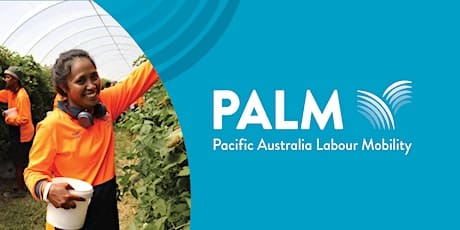 NEW Pacific Australia Labour Mobility Scheme rules will force Australia’s shearing contractors to focus on alternative labour sources, according to the sector’s national body.
NEW Pacific Australia Labour Mobility Scheme rules will force Australia’s shearing contractors to focus on alternative labour sources, according to the sector’s national body.
Shearing Contractors Association of Australia secretary Jason Letchford said the industry had been working on a PALM pilot with a New South Wales shearing contractor.
The agricultural sector had been seeking a weekly hourly work minimum to be averaged over eight weeks, which in shearing would accommodate ‘wet’ weeks when sheep could not be shorn, he said.
But he said the final requirement for short-term PALM workers to be guaranteed a minimum of 30 hours of work per week from 1st January 2024, rather than over an eight-week period, was disappointing.
Mr Letchford said the 30 hour weekly requirement would not kill shearing sector interest in the scheme.
“But it is certainly going to disincentivise a significant percentage of potential employers who were looking at the program.”
He said the PALM scheme needs to be commercially viable for both parties. Given that the program is not up and running for wool harvesting, Mr Letchford said contractors were already looking at other sources of labour.
“And given the feedback that we’ve had from government in the last month, then we are only a hair’s breadth away from just giving up on it (PALM).”

SCAA secretary Jason Letchford.
Mr Letchford said the industry believed it had a very good program to care for and employ PALM workers, including support from Australian Wool Innovation for training.
He said the accommodation, pastoral care and training services and conditions that were proposed for PALM workers under the NSW pilot were “far above” what any domestic worker would receive.
Mr Letchford said the shearing labour market is turning in favour of Australia, with falling New Zealand sheep numbers meaning more NZ workers would be available, and the sector is looking at the new short-term skilled work visas to access United Kingdom workers under the new Australia-UK Free Trade Agreement.
“At the moment those options are winning the race from the feedback we are getting from the Department of Employment and Workplace Relations and the Department of Foreign Affairs and Trade.
“The pushback that that they gave us on our approach on PALM I would consider was unfounded and therefore it raised a bigger hurdle to jump over and made it somewhat less competitive that the other alternatives.”
The final PALM scheme Approved Employer Deed and Guidelines released on Tuesday by the Department of Employment and Workplace Relations, has prompted the NFF Horticulture Council to suggest there was a risk of a mass exodus of participants and damage to Australia’s ties in the Pacific region.
Fewer PALM workers will be brought in – AEA

AEA executive officer Steve Burdette
Approved Employers of Australia executive officer Steve Burdette said what the government had tabled for the PALM scheme is not better than the AgVisa it decided not to support.
“There are certain clauses in there that are unworkable and industry as a collective has been negotiating and trying to settle on changes and compromises, but they just haven’t moved.
“And the most contentious one for you (shearing) and for us is the 30 hours,” he said.
“Now what they are saying there will be no change to the 30 hours, to have that flexibility over the duration of the contract for six months; after six months we have to guarantee 30 hours over four weeks and after the first of July next year, we have to pay 30 hours on average every week, regardless of any force majeure.
“You can imagine the complications that is going to have for the horticulture and wool industries..” Mr Burdette said.
He said horticulture would have to change the way it thought about its labour and this would have negative impact on the numbers of workers brought in from the Pacific region, especially for horticulture. Employers would also be stricter on who they brought in, aiming at only high-performing workers.
Mr Burdette said the AEA had discussions with the Australian Workers Union and had indicated it was happy to support a four-week averaging in principle.
“It’s the other unions that are pushing back, but who’s governing the country?”
“It’s not about what they think is a good idea or not, it’s what is practical and logical and what is going to work for the Pacific and ourselves, because now, I’m concerned we are going to send the Pacific a very wrong message and that’s contrary to what the government actually wants to do,” he said.
“I would hope to think that in the next 6-8 months, when they start implementing all these changes, that commonsense will prevail, because otherwise it’s just going to be very hard and very expensive and we are just going to push costs up.”
NFF Horticulture Council spokesperson Rachel Chamber said: Most alarmingly, some of these changes appear to be a proxy for wider ideological industrial relations reforms and fulfilling a shopping list of demands from the union movement.
“From the outside, it appears that the ACTU is running the show, making decisions which will send the PALM into meltdown and damage our ties in the Pacific,” she said.
Deeds and guidelines welcomed by the AWU
The Australian Workers’ Union has welcomed the suite of major changes to the Pacific Australia Labour Mobility (PALM) scheme that it believes should provide much-needed protections and support for PALM workers.
Key improvements include a minimum of 30 hours of work per week and a minimum weekly take-home pay of $200. Additionally, the revisions promise pay parity with domestic workers and make inductions mandatory for all workers, the union said.
AWU national secretary Daniel Walton said the union has been campaigning long and hard for improvements to the PALM visa scheme and he was very pleased to see the changes announced.
“These are not minor adjustments but significant wins for both the AWU and the workers we represent.
“They provide much-needed safeguards, regular income, and will help ensure the dignified treatment of farm workers.”
“Our international reputation has been tarnished for too long.
“We should never lose sight of the fact that the PALM scheme is not just about filling labour shortage gaps, but also about strengthening ties with our neighbours.
“That can only happen if the people who come here to work are treated respectfully and fairly.”
Mr Walton cautioned that the impact of the new rules will depend on robust enforcement.
“These rules will only be as effective as their enforcement. It is our collective responsibility to ensure these changes are more than words on paper.
They must bring about a real difference in the everyday lives of the people we represent,” he said.
The most notable changes to the scheme include:
– A minimum of 30 hours of work per week for short-term workers, starting from 1st January 2024.
– An accommodation and transport safety net for workers offered less than 20 hours of work per week.
– A guaranteed minimum weekly take-home pay of $200.
– Pay parity with other workers in the same workplace.
– Mandatory inductions for all workers.
The PALM scheme allows approved Australian businesses to hire workers from nine Pacific island countries and Timor-Leste. As at 31 March 2023, there are 431 employers approved within the scheme engaging more than 37,000 workers, mostly in the agriculture and horticulture sectors.

Maybe if the shearing contractors association actually tried talking to all industry stakeholders before they propose a half-baked and unsafe idea to use the PALM program workers as shearers then they wouldn’t have such strong pushback from government, who called it out for what it was: a half-baked and poorly prepared proposal.